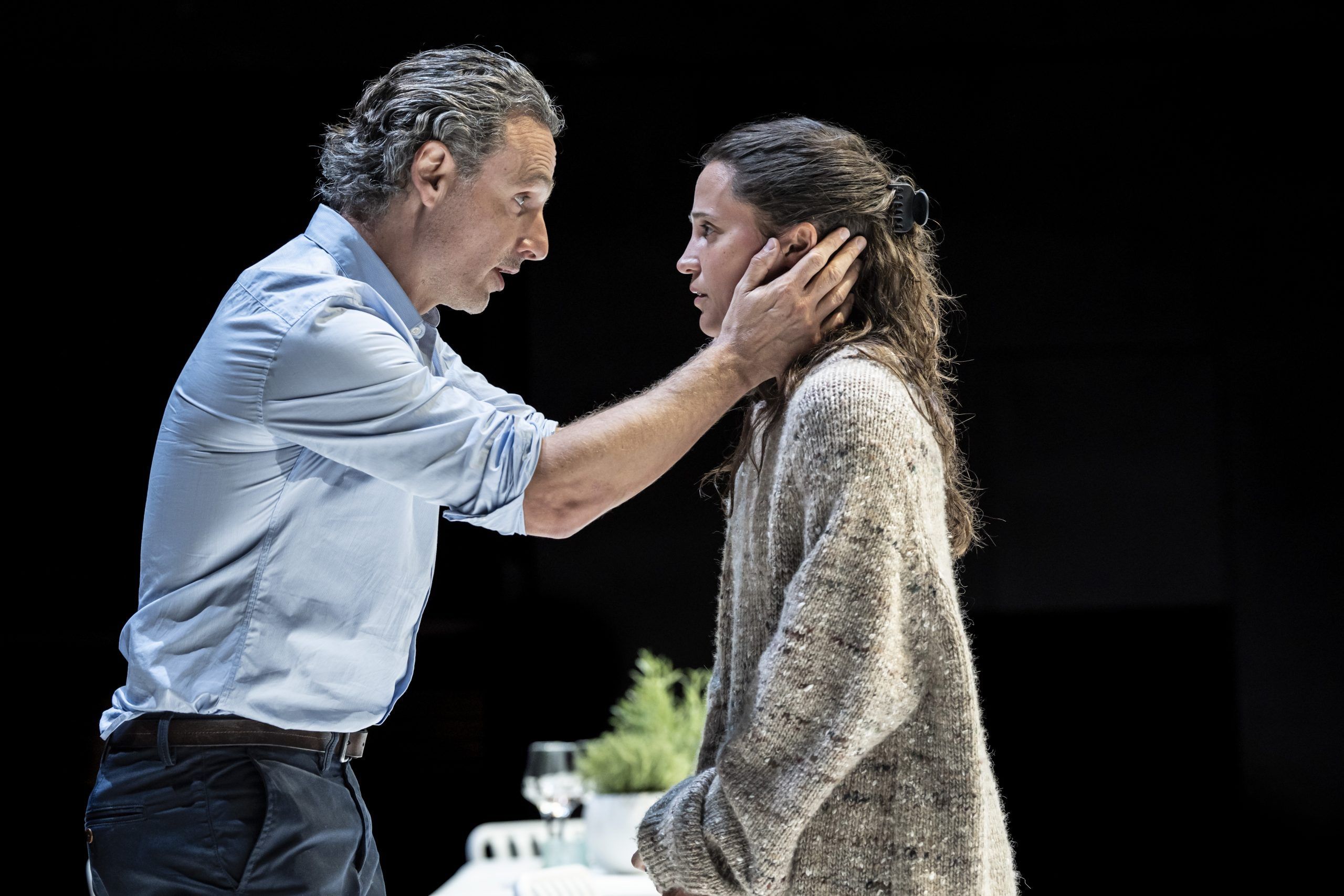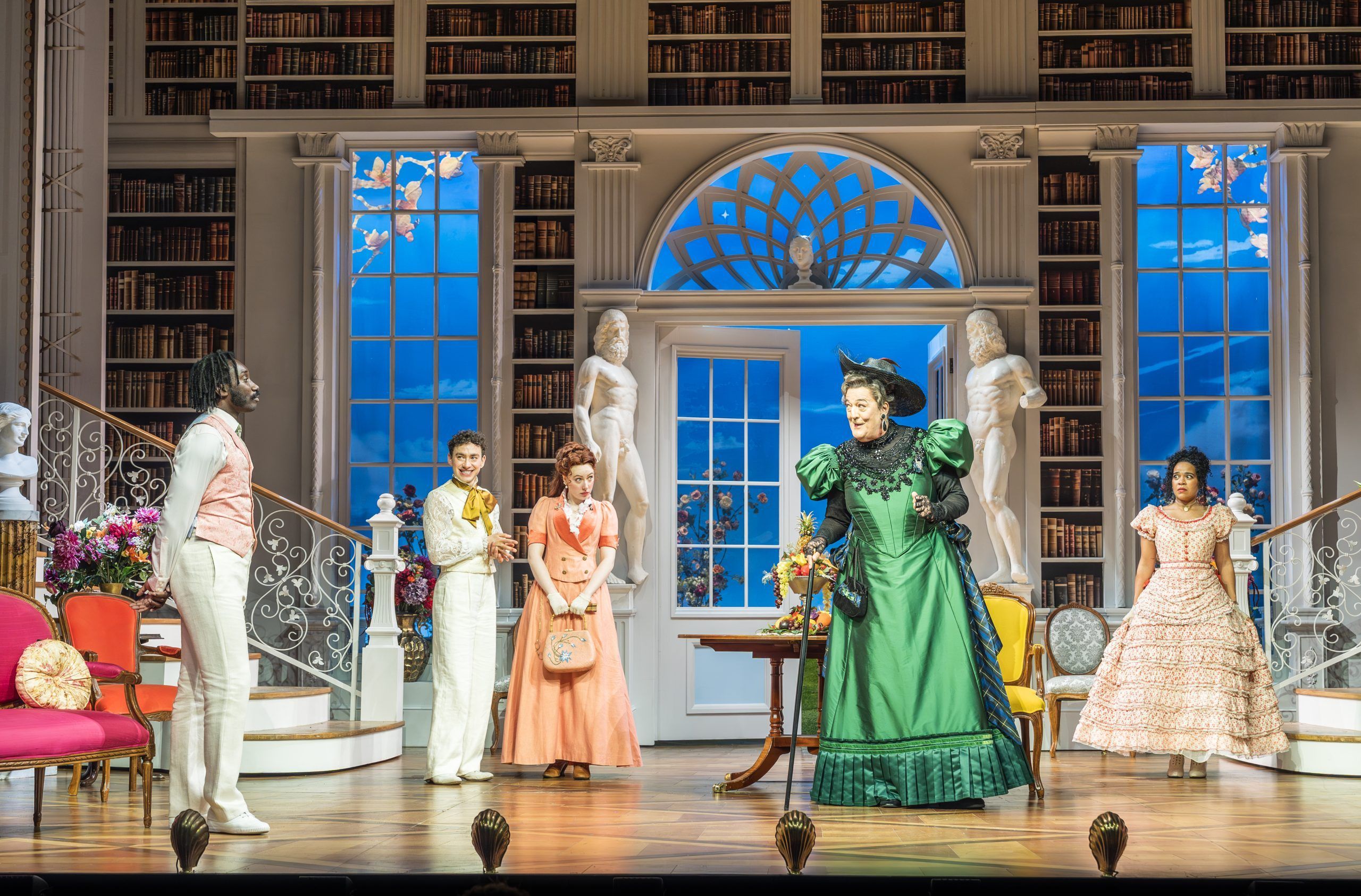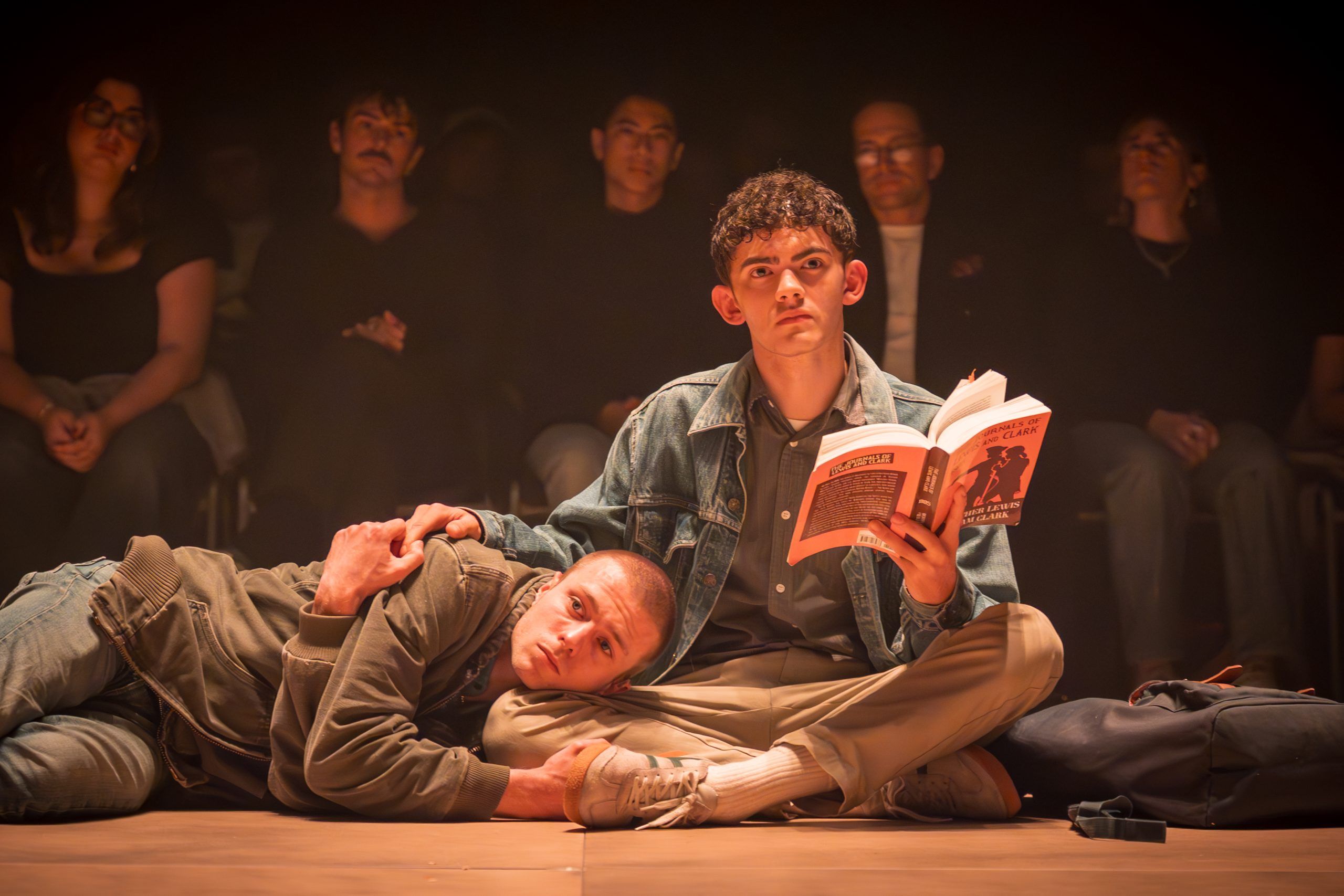The Lady from the Sea at The Bridge Theatre, is a modern adaptation of Ibsen’s play of the same title, first produced in 1889. Written and directed by Simon Stone, the play has been transformed for 2025 and feels as fresh as any new work in the West End.
Starring Alicia Vikander and Andrew Lincoln, with a stellar supporting cast, the play is set almost entirely in the country garden of Ellida (Vikander) and Edward (Lincoln), in the beautiful but remote Lake District. They have been married for 5 years or so, and Edward has two teenaged daughters, Asa (Gracie Oddie-James) and Hilda (Isobel Akuwudike), whose mother Aisha killed herself years earlier. The girls are troubled, but no more than any other modern teens, full of attitude, humour and longing, and Ellida is still finding her place in a family that hasn’t fully let her in.
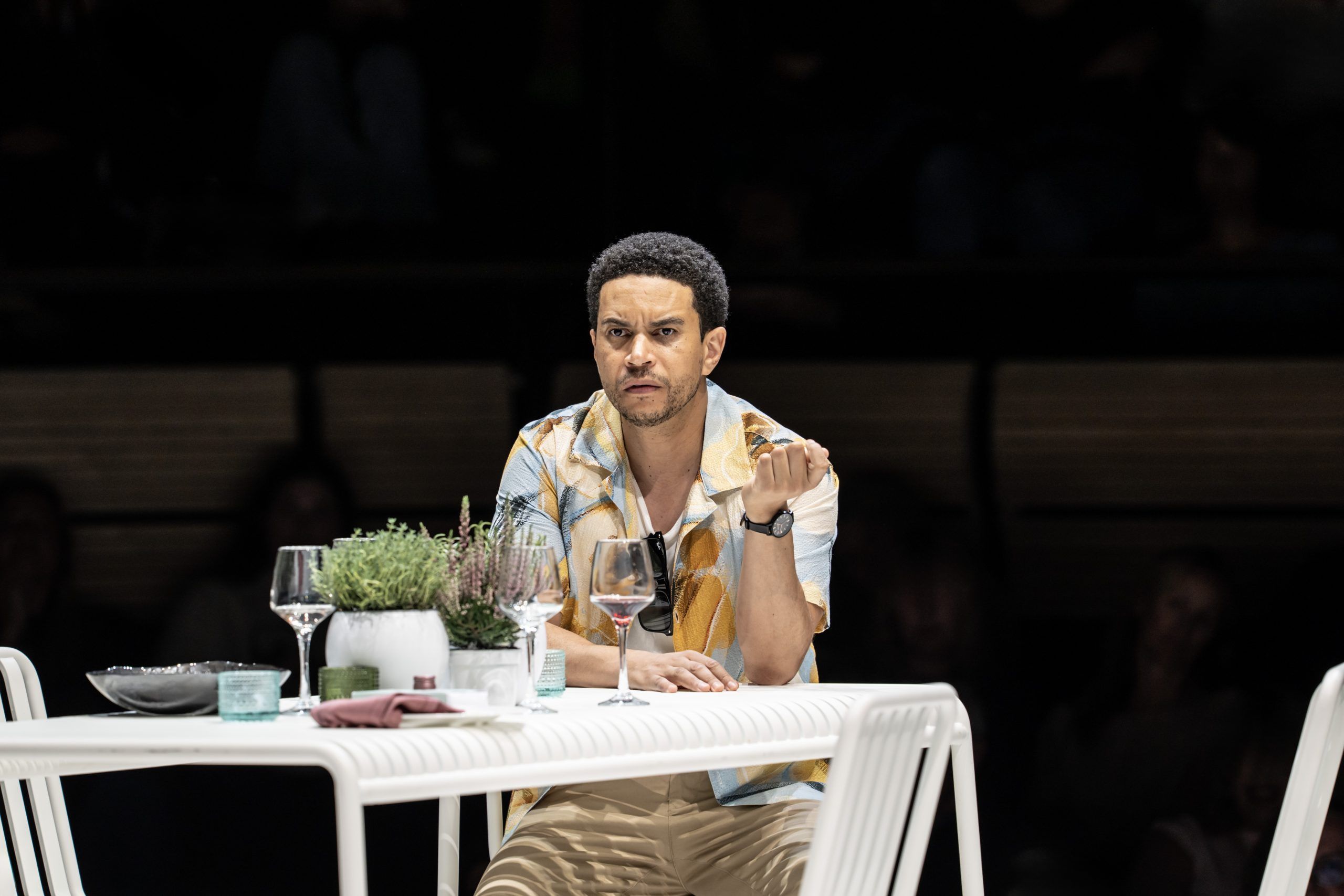
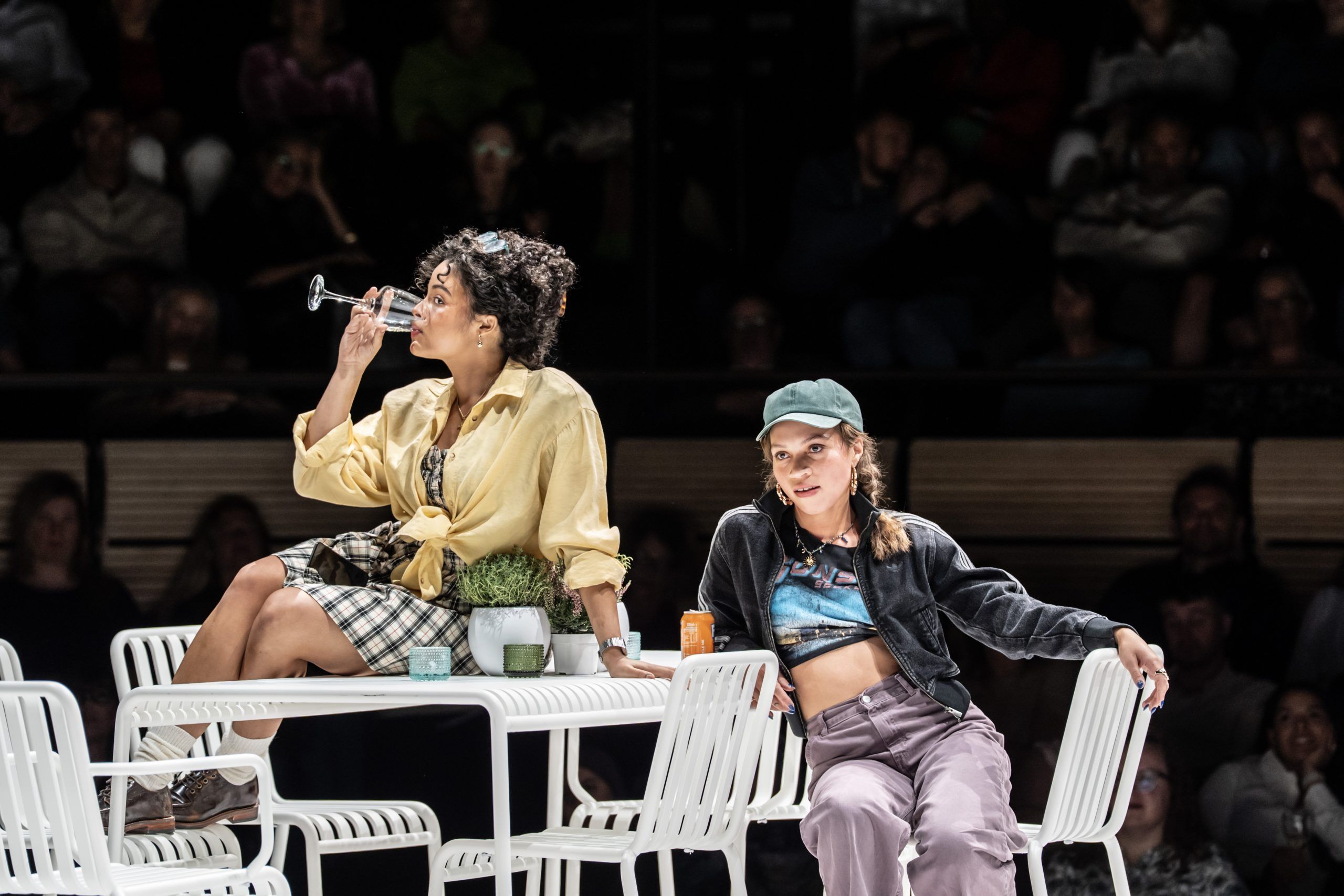
From the very start it feels extremely modern – within minutes there are mentions of phone apps and Instagram, signalling that this isn’t Ibsen as we know it. It’s a fully updated script, and it works. Sometimes you’re in the mood for classical language, sometimes you just want the raw story without 19th-century phrasing getting in the way, and this lets you straight in.
The opening brings neurologist Edward and his distant cousin Heath (Joe Alwyn), who’s come for a diagnosis. Heath’s the kind of man who proves he’s clever by quoting poetry and obscure literature, which is funny but also grating, and his bad news (ALS, six months at best) sets up some poignant reflections about fate and mortality. They don’t dominate the play, but they echo through it.
What drives the evening is Ellida and Edward’s marriage. Their 15-year age gap mirrors the casting and sets the stage for the tension. Ellida still feels like an outsider in the family, and the girls needle her in the way only teenagers can. Asa is cheeky and clever, and Hilda is restless, furious at her mother’s death, desperate for someone to cling to and care for – a role that Heath, only a fourth cousin, fills for her. They’re fun, they’re lovely, and very close as sisters, so close that Hilda even calls Asa her “ersatz mother” at one point, which Asa bristles at. Both characters feel believably modern and sharply drawn.
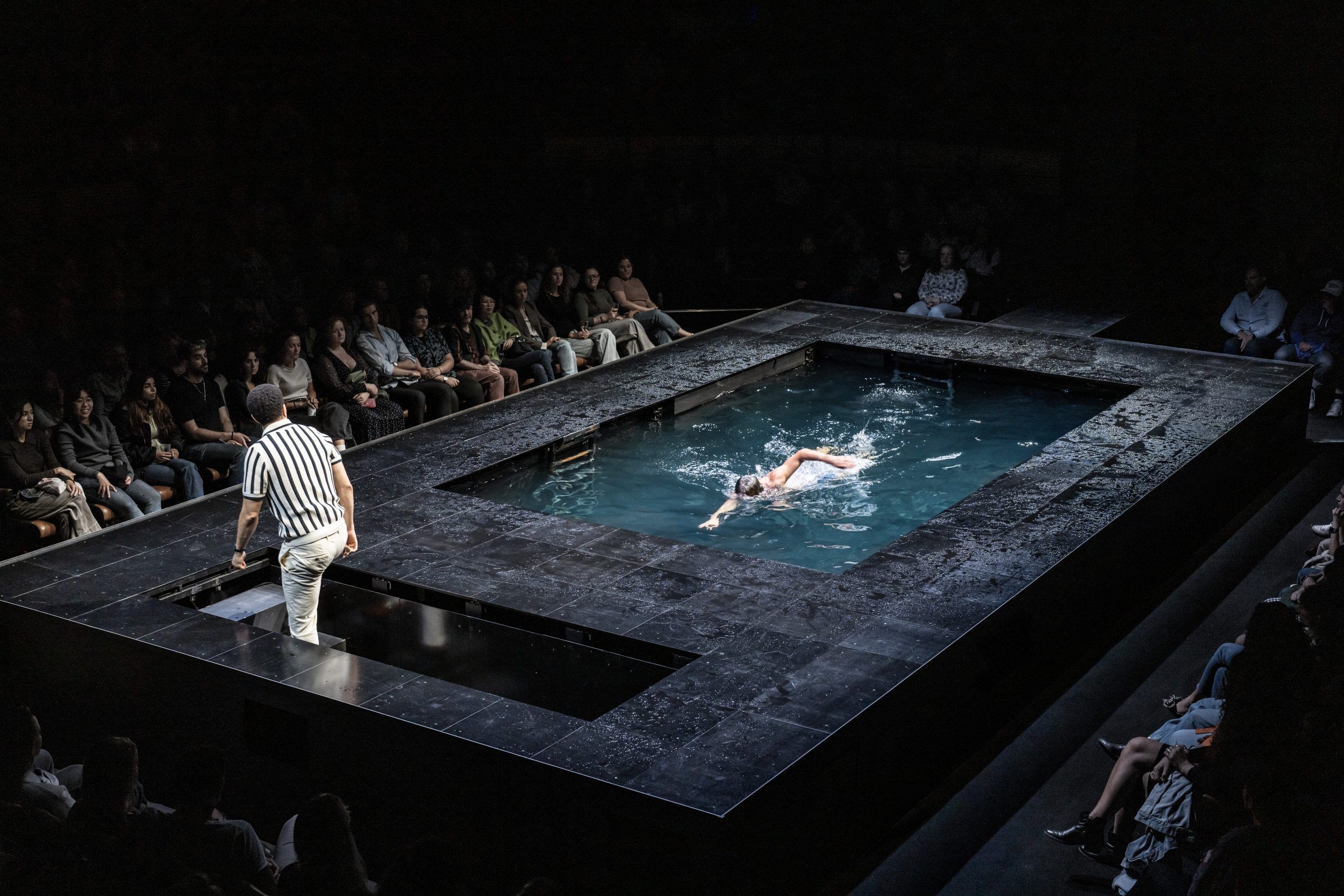
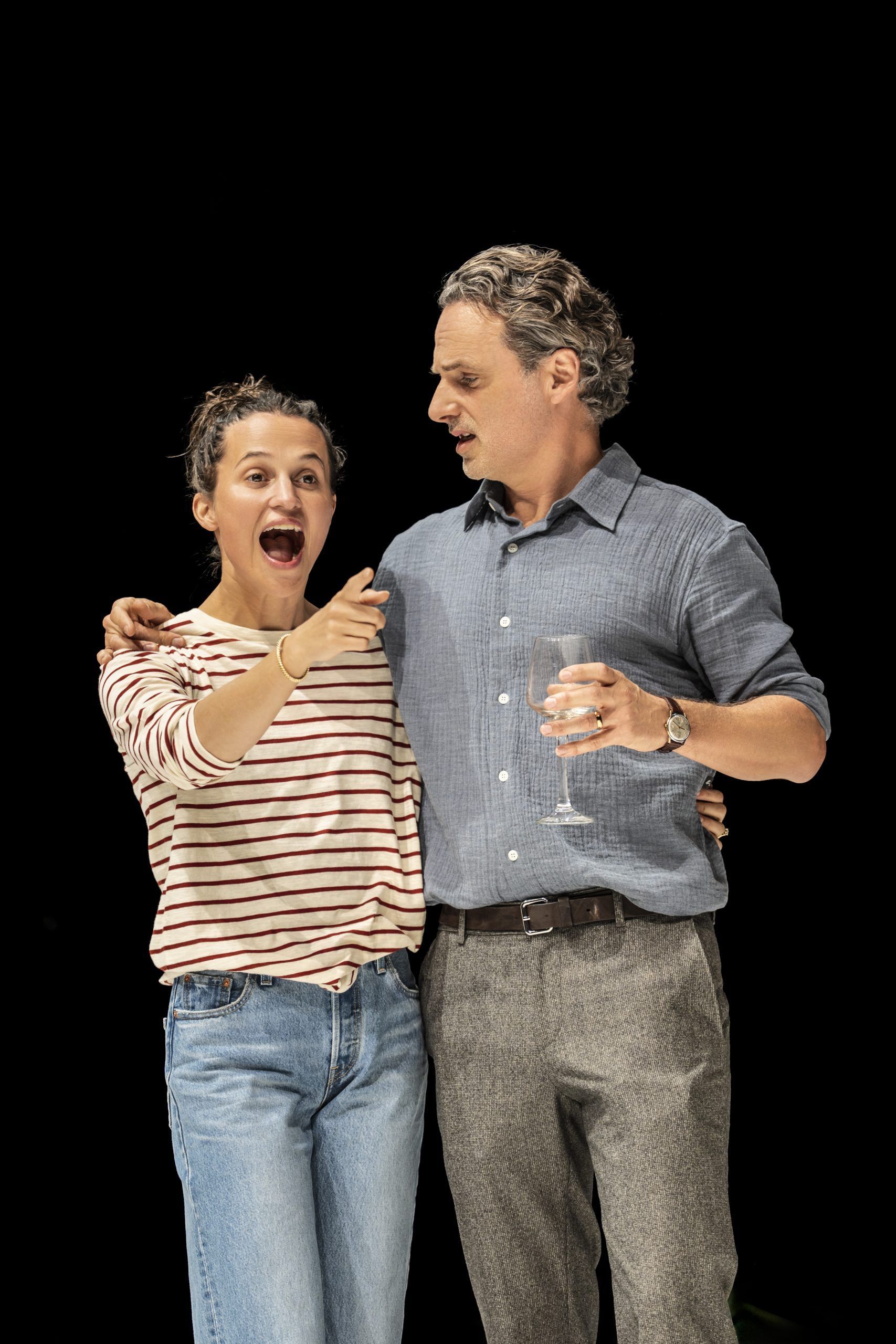
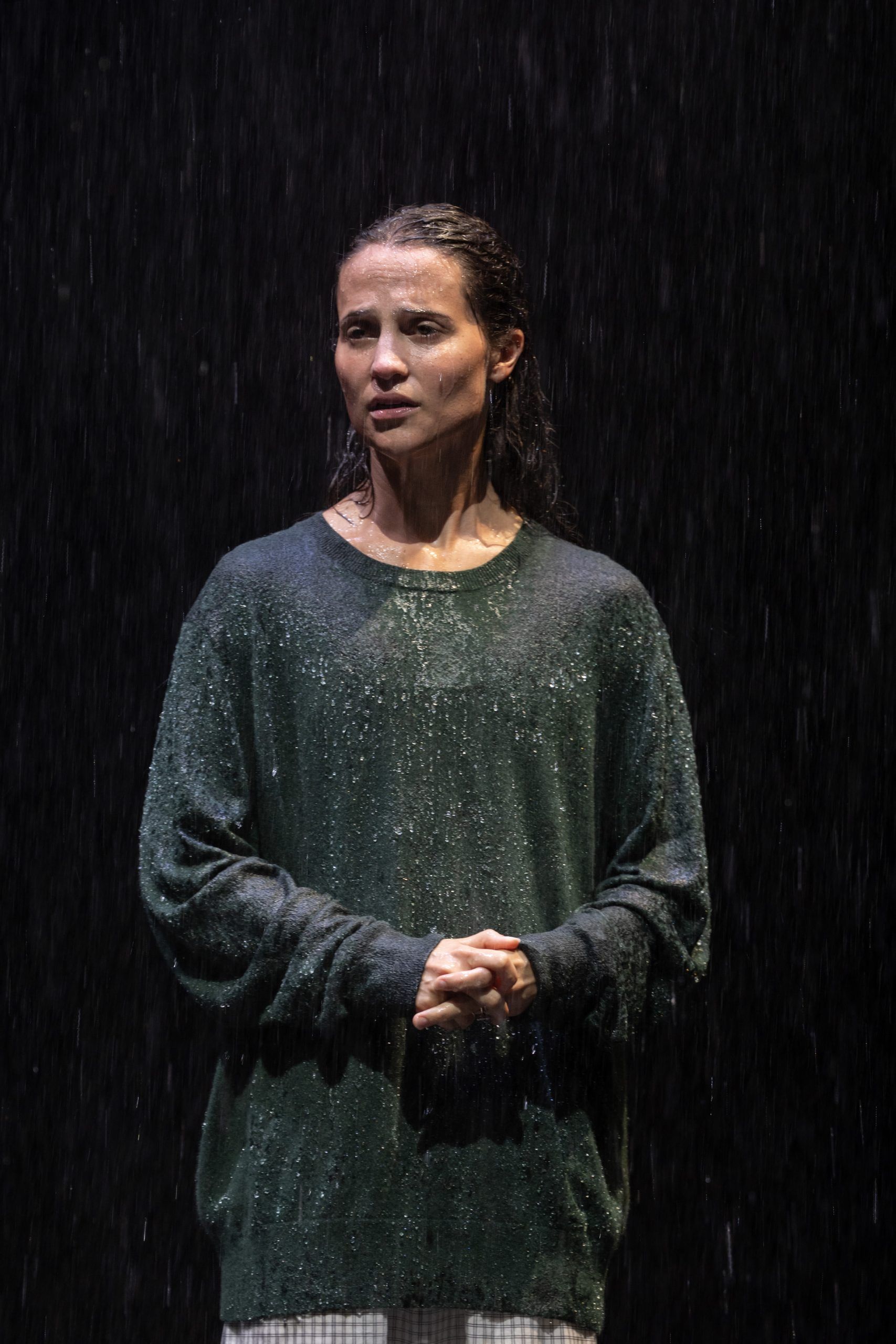
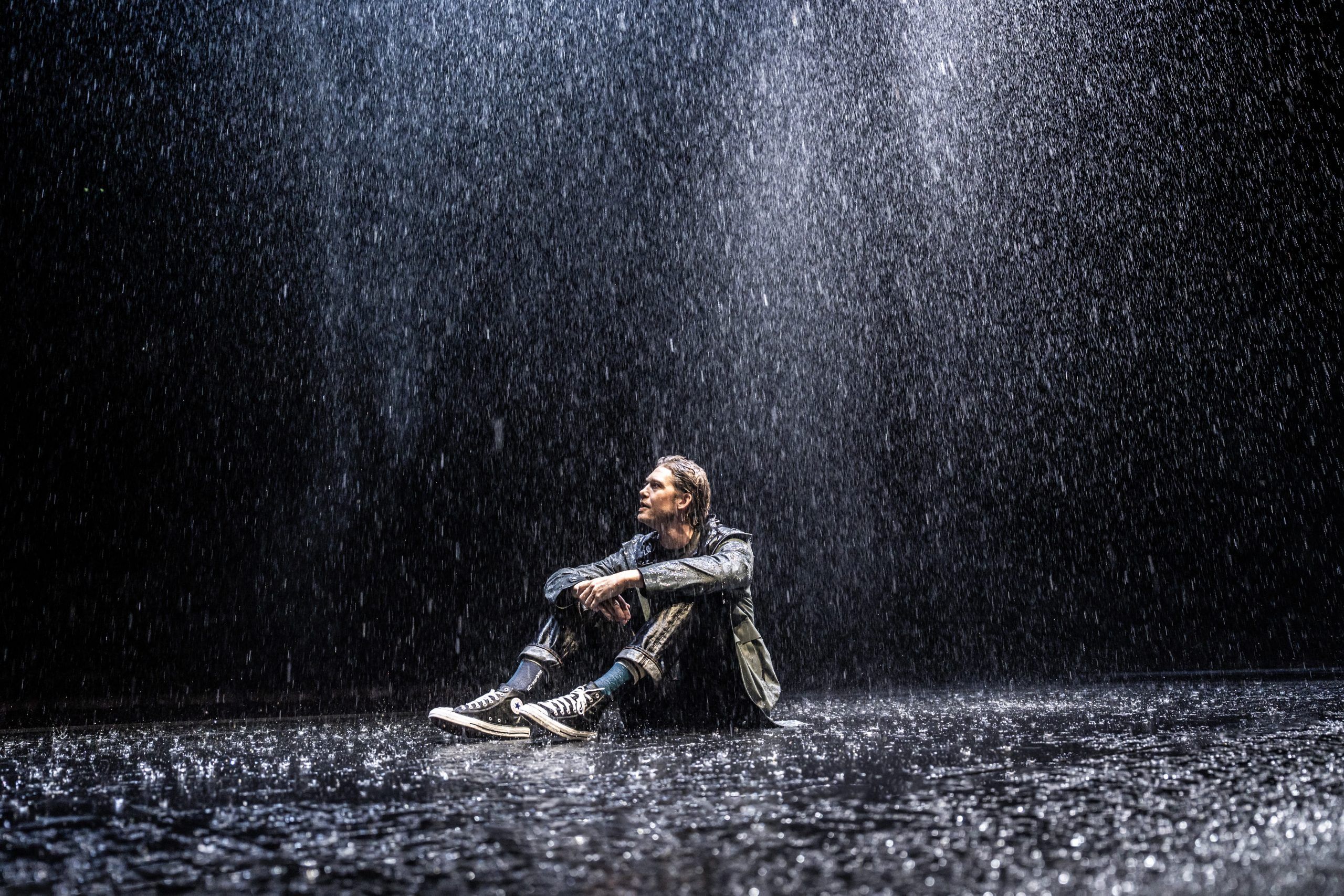
A vital presence in all this is Lyle (John Macmillan), Edward’s best friend. He’s like an uncle to the girls – close enough that they confide in him more easily than their father. He provides that role for everyone, really: someone who listens without judgement, who holds space rather than pushing an agenda. He’s there for Edward, for Ellida, for the daughters, always steady, always compassionate. He’s also a brain surgeon himself, having fought hard to get there overcoming his dyslexia, which makes Heath’s effortless bookishness grate on him, though Macmillan plays the irritation without ever letting it dominate. The performance makes Lyle feel like the anchor of the household – reliable, trusted, the person everyone turns to when they can’t turn to anyone else.
Then there’s Finn, Ellida’s past lover, brought chillingly to life by Brendan Cowell. He’s quiet, calm, but brimming with menace. Vikander’s Ellida unravels in his shadow, emotions pouring out as if the sea itself has dragged them to the surface. At first I wasn’t sure if I was connecting with her grief, but when she finally comes face to face with him, it hit with full force.
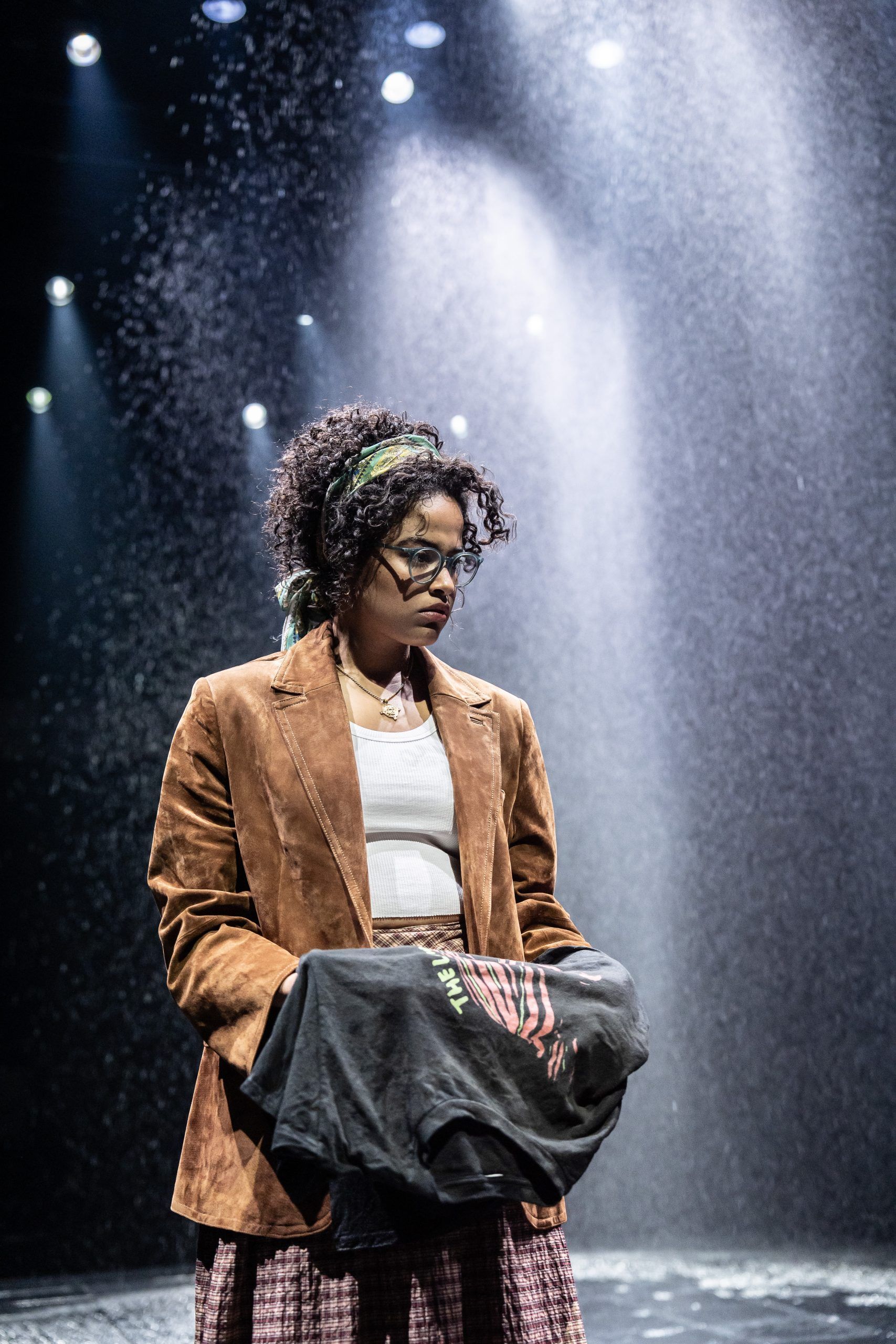
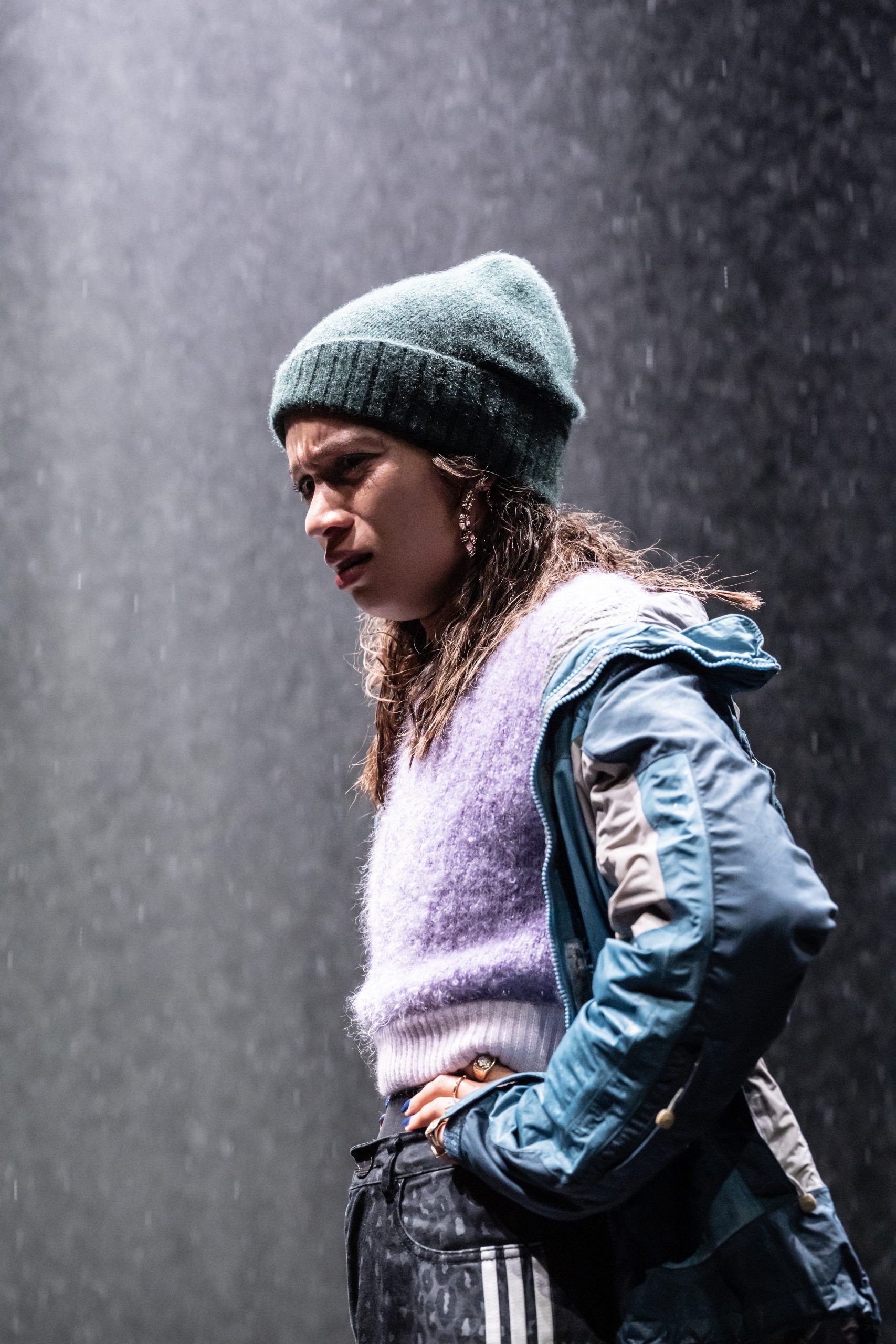
Lincoln, meanwhile, is superb throughout. His Edward is passionate, funny, utterly believable, but also raw when his wife’s past love threatens to tear him apart. Some in the audience laughed at his anguish, maybe out of discomfort, but I felt his pain deeply.
Lizzie Clachan’s set design is deceptively simple: just garden furniture at first. But the production is full of dualities – before and after, light and dark, danger and safety, family and passion – and the set embodies that brilliantly with a subtle transformation at the interval that floored me. Stone’s direction leans into those contrasts at every turn, shifting the tone from playful banter to searing confrontation, from stability to chaos, with absolute precision. And then there’s the technical coup: rain pouring down one moment, then in a blackout it becomes a swimming pool with Edward swimming lengths. It’s silent, seamless, jaw-dropping. The Bridge has made a reputation for re-engineering its stage every production, and this is another marvel – but it’s Stone’s vision that ties these flourishes to the emotional heart of the play.
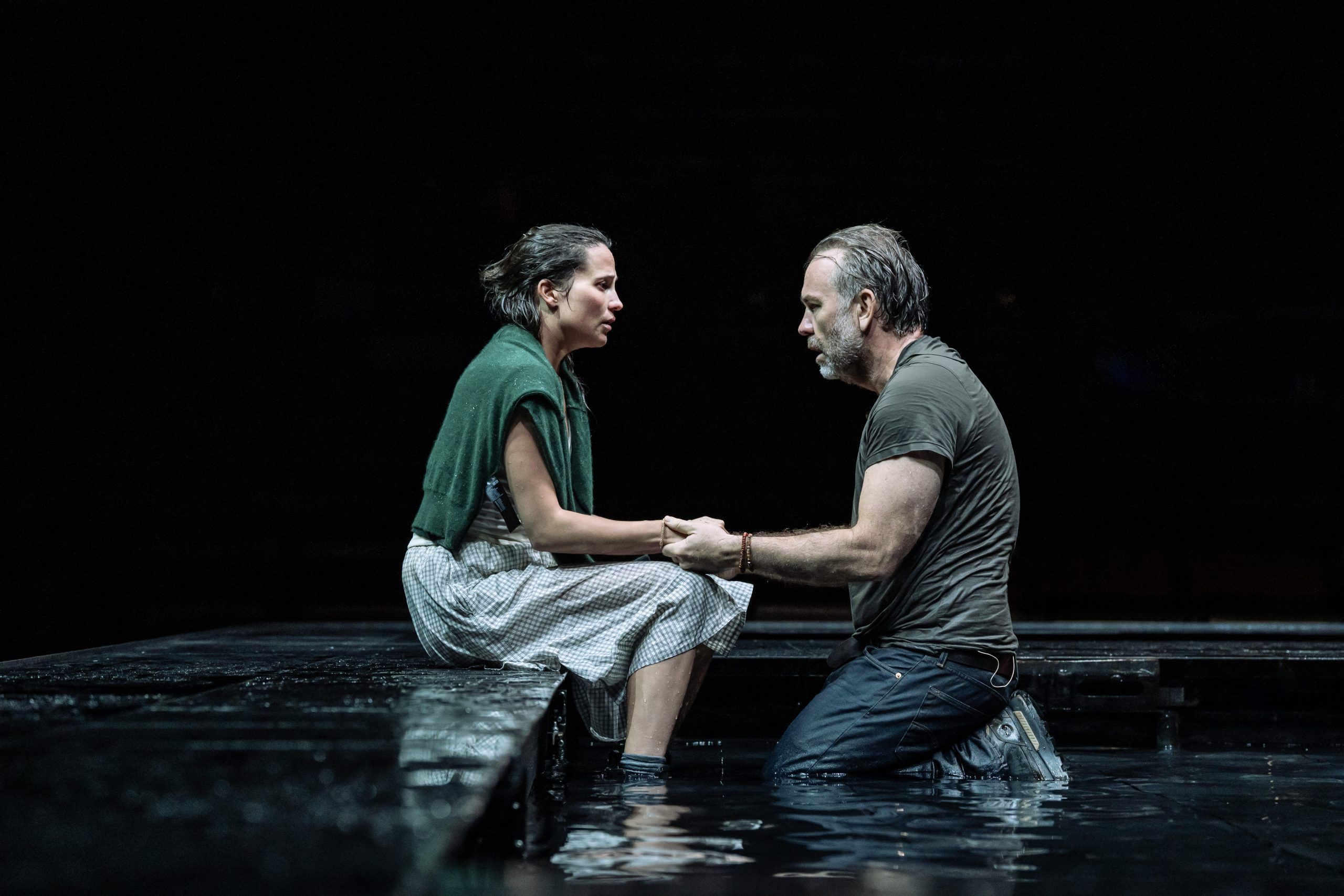
Every role contributes something vital. Alwyn’s Heath is pretentious yet touching. Gracie Oddie-James and Isobel Akuwudike are sharp, funny and painfully truthful as the daughters. Macmillan’s Lyle is the confidant everyone needs. Cowell’s Finn haunts the stage even when still. Stefan Gregory’s score underlines the emotions without smothering them.
The play is 2 hours 40 including an interval, and I never once drifted – a miracle given my ADHD. I was focused and totally invested. This is gripping, heartbreaking, funny, emotional, and technically dazzling theatre.
The Lady from the Sea is an astonishing reimagining of Ibsen and I cannot recommend it highly enough. See it before it sails away on 8th November.
The Lady from the Sea is playing at The Bridge Theatre until 8th November 2025.
Get your tickets at bridgetheatre.co.uk
Words by Nick Barr
Photography Johan Persson

